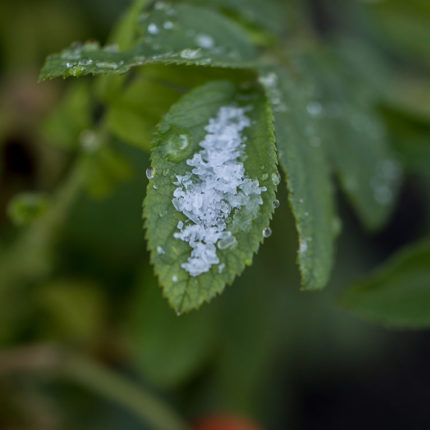As we welcome spring and warmer weather, now’s the perfect time to start planning your garden. If you’ve been searching for tips to help grow bigger and better plants, you’ve come to the right place!
Studies show that magnesium and sulfur, two naturally occurring minerals that are major components of Epsom salt, have been known to help plants grow greener with higher yields and more blooms.
Known as the best kept secret in gardening, experts recommend the use of Epsom salt to prepare soil for planting and to treat and feed specific plants, including peppers, tomatoes, fruit and roses. Epsom salt can also help keep house plants, lawns, trees and shrubs healthy.
Here are five gardening tips to help test your green thumb this spring:
- Feed your plants Epsom salt. Just like people, plants need more than just water, they also need food and nutrients. Minerals are one of the most important parts of keeping your garden well fed. Epsom salt is a compound comprised of magnesium, sulfur and oxygen. These compounds go into the soil and help the plant grow bigger and produce more.
- Weed your garden with a chemical and toxin-free solution including Epsom salt. You can safely create a chemical-free and natural weed killing solution by mixing two cups of Epsom salt, one gallon of white vinegar and a quarter cup of gentle washing liquid into a spray bottle. Ensure you soak the entire weed with the mixture and wait for a day to inspect and repeat until all the weeds are eliminated.
- Use Epsom salt to enhance produce flavors in your vegetable or fruit garden. Epsom salt may not have the same atomic makeup as table salt, but it works as a flavor enhancer in fruit-bearing plants. So, whether you’re growing grapes, berries, peppers or tomatoes, Epsom salt treatment can help you grow delicious, flavor-infused fruits.
- Incorporate Epsom salt into your indoor plant watering routine. Some houseplants get a bad rap for being too sensitive or hard to care for. If you’re worried about the same outcome, consider using Epsom salt to help boost your houseplants’ nutrition level. Mix two tablespoons of Epsom salt into one gallon of water and apply it directly to the leaves for higher mineral uptake. Or, depending on the plant height, you may add one tablespoon of salt per foot to the soil. Ideally, you should administer this mineral compound to your plants every month and note the difference in growth and foliage density.
- Promote lush lawn growth with Epsom salt. If your soil tests positive for magnesium deficiency, Epsom salt can help your lawn achieve maximum growth and lushness. Apply three pounds of Epsom salt for every 1,250 square feet of lawn with a spreader. Sprinkle the salt lightly, then water your lawn with a hose or sprinkler system.
How to use Epsom salt with flowering plants
Epsom salt is the key to fuller buds and perky blooms. So, if you want your flowering plants to reach their full potential, make sure to throw in some magnesium sulfate in the mix. More often than not, flowers experience magnesium deficiency during the blooming process.
Also, if growing continual bloomers, administering Epsom salt ensures richer green pigment and bigger crowns. Magnesium increases the production of chlorophyll in plants and as a result, the plants thrive, providing higher yields every flowering season.
For optimal use, follow this application technique: once a year, mix Epsom salt into the soil surrounding the flowering plant. Top it up with a batch of dissolved salts when the new vegetation crops up.
How to use Epsom salt with vegetable plants
In general, Epsom salt can benefit the majority of vegetable plants, but it particularly works wonders for tomatoes and peppers. This is mainly because both these plants are naturally deficient in magnesium.
Magnesium sulfate can help prevent rot and enables plants to establish a deeper root system and produce a higher yield. Incorporate the salt into the soil while planting the veggies so they can access the necessary minerals.
After that, keep spraying the plants with the Epsom salt solution every two weeks or so, to provide them with a consistent supply.





